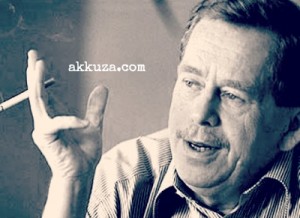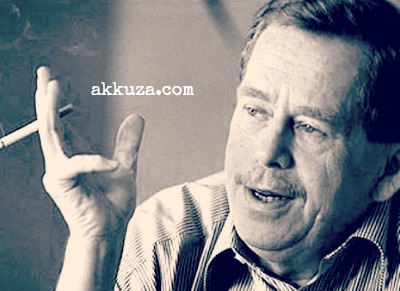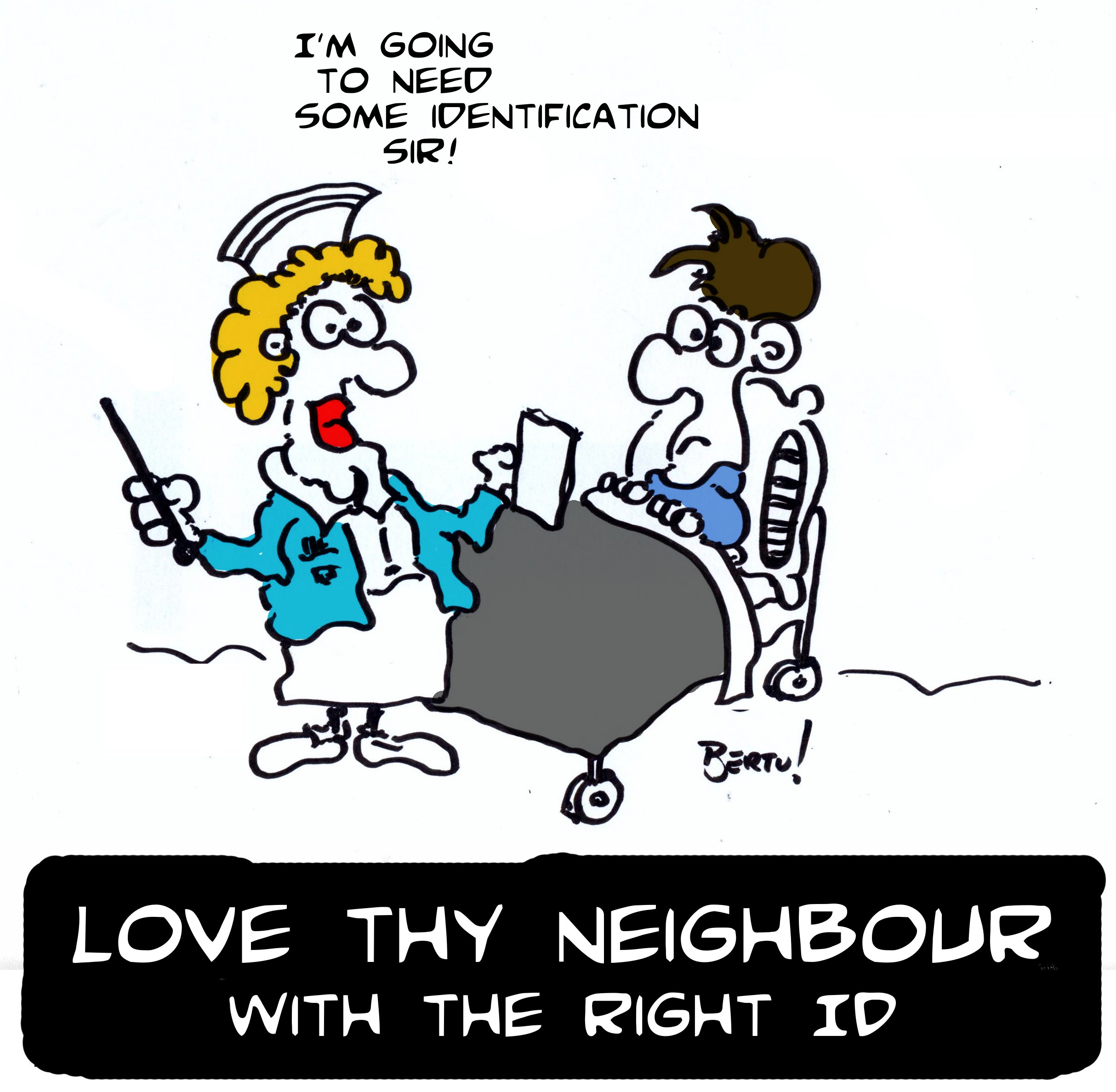In case you were wondering, yes, I did survive my bachelor’s weekend in Italy. There’s nothing like spending some quality time with close friends who can second guess your every whim and fancy without batting an eyelid. It would indeed be a great world to live in if we all managed to live together like bosom buddies without feeling the need to justify our existence by highlighting our differences.
I only bought one book in Bologna − “Costruire il nemico” − a series of essays by Umberto Eco. In the first essay, Eco speaks of the need that has always existed in society of “constructing the enemy” and of the different manners in which such an enemy has been constructed. The essay is a roller-coaster ride through history that chronicles this historic “construction”: from Cicero’s depiction of his Catiline enemies, through the early Encyclopaedia Britannica entries on “Negroes”, through historic views (by “others”) on Saracens, Hitler on the Jews, Boccaccio on women or whoever else on whatever other category has been unlucky enough to be pigeonholed as the detestable enemy.
“(…) sin dall’inizio vengono costruiti come nemici non tanto i diversi che ci minacciano direttamente (come sarebbe il caso dei barbari), bensi coloro che qualcuno ha interesse a rappresentare come minacciosi anche se non ci minacciano direttamente, cosi che non tanto la loro minacciosità ne faccia risaltare la diversità, ma la loro diversità diventi segno di minacciosità”.
Think different
They say that a week is a long time in politics so I thought that an unplanned pause from the blogging and political scene would mean a return to topics new. Not really though, it was only last week that I was commenting on the farce that was the MUMN’s badly managed PR about the supposed stress caused to the entire Maltese health system by 16 (yes, sixteen) Libyan patients (one has sadly passed away since then).
Meanwhile, Dr Gonzi has declared the ITU closed for business in a very pre-Arriva bus-driver style declaration of “Full Up”. The MUMN, eager to stay ahead in the national foot-in-mouth championships couldn’t resist another jibe at the country’s political priorities. Apparently, the MUMN must have felt that crassly insinuating that Libyans should not be treated before every last Maltese national gets his taxes worth is not enough. So what better way to up the ante than to engage in further stereotypification. And what better “class” of citizens to use than the “Gozitans”?
They did get the headlines on the papers: “Gozitan patients lacking same political commitment given to Libyan patients”. This either means that the patients from Gozo are not as sufficiently politically committed as their Libyan counterparts (not dying for the patria are we?) or − as the “given” in the title seems to insinuate − there is not sufficient priority being given to the needs of Gozitan people coming to Malta for treatment.
Forgetting this grammatical cul-de-sac for a minute, it is absolutely ridiculous of the MUMN to actually bring this particular card out of their twisted set of lobbying instruments. The “Gozitan” cause is useful to politicians who want to specialise in a “minority” niche (if it’s not the South then it’s Gozo or Sliema or Siggiewi) and turn it into something really, really special. It is also useful to particular columnists who tend to thrive on a bit of Gozitan beating every now and then − they do so by spuriously linking localised examples of very Maltese ignorance to one particular geographic corner − as though what happens in Gozo never happened in Bisazza Street, Rabat or Cospicua.
I know. I’m biased. But what should that change? Are we stupid enough to erect barriers on the spittle of an isle we call home? What next? “Siggiewi patients deserve more attention in Maternity Ward?” And where the hell are the ethical principles that should be the foundation for a caring profession? For heaven’s sake − doctor, nurse, scrub, whatever − if you are in a caring profession then I’d expect you in the very least to be seeing each and every patient as just that: a patient. It’s not an ID Card that you have to cure; it’s a burn, a bullet wound or a severe case of chicken pox.
“Gozitans, Libyans, Siggiewi people, Xewkija people” − that’s not the language for nurses or their representative association. It’s the dangerous language of politicians who are prepared to go down the route of “great minds” before them… a geezer named Adolf comes to mind. Don’t worry though. This should all change with the news of Gaia the dog found in a skip. All this fuss about dying Libyans and underprivileged Gozitans will soon be sidelined to favour the plight of Malta’s latest animal hero. I wonder if the Animal Welfare Centre has a policy about particular breeds. “What? A boxer? No siree… we’re politically committed to Chihuahuas, Spaniels and Whippets…. “
Different strokes
Paul Pace and the MUMN chose the wrong imagery in order to highlight what might be a legitimate complaint of theirs. If our hospital system is understaffed, if patients (no matter what ID card status) are not being given a decent service and if there are other such similar problems, then there is no doubt that it is the business of a body like the MUMN to bring this to the attention of whoever may change such things. On the other hand, the dangerous game being played of fuelling discontent with the language of hatred is absolutely not done. There is no reason on earth for a nurse, doctor or hospital receptionist to treat one patient differently from another on the basis of nationality − or (heaven forbid) the village or town he is born in.
All too often we fail to discern the dangers of the divisive language that we really employ in our dealings with political affairs. Yes, it is my usual gripe but our dualist way of seeing things − black or white, blue or red − does not help us in any way. Thinking different requires a logical leap and a change of old customs and habits. It requires first of all that we collectively look in the mirror and realise the absurdity of our current situation. We need to concentrate on “knowing ourselves” more than on “knowing/constructing our enemies”.
Just read through the news and you will see what I mean. It’s not just sick individuals putting dogs in skips. It’s permits being issued to an establishment that will manufacture gas metres away from a fireworks factory. Worse still, just look at what the two parties are packing as marketing material for the next election. We had GonziPN selling you bundles of “Pride” while MuscatPL promised the masses that a PL government would give the people “Hope”. Hope? Pride? Talk about intangible faff. I had a dream where I filled my car tank with “Hope” and then proceeded to pay the station attendant in little “hope coins”. “That’s all I’ve got mate… but at least we got a change in government”.
Sunny Michaelmas
We had a sunny Michaelmas up north. That’s the 29th September. Apparently it means that we will have a mild and possibly sunny winter. Tell that to the stork who is gracing Gozo with its majestic presence. Do you follow the news like me − with that sinking feeling that any moment now the next update will say “Stork shot dead over the sea”? Why does it have to be like that? Where do we find all this darn hatred and anger that we unleash on a regular basis?
The ancient Greeks had the words “Know thyself” inscribed on the entrance to the Temple of Apollo in Delphi. Sun-Tzu, the Chinese philosopher is attributed the saying “Know your enemy” in his Art of War. That’s some classical thought that is valid to this day. We might do well to do some introspective reflection − there’s time yet for the construction of another round of enemies − we’re only a few months away from full election fever anyway.
 Back in 1992, Vaclav Havel was the President of a reborn Czechoslovakia. The fall of the Wall and the crumbling of the Iron Curtain was still fresh in recent memory and Havel’s new republic was making its way towards the ideal of “Western Democracy”. Fukuyama might be standing round the corner proclaiming the end of history but for the Czechoslovak playwright and poet President the future was full of hope. In the summer of 1992, Havel wrote a series of essays published in a book called “Summer Meditations”. In “Beyond the Shock of Freedom” he tries to imagine what Czechoslovakia would be like in the future (ten, fifteen, or twenty years). Though he admits that “life is unfathomable” he does try to dream for a while.
Back in 1992, Vaclav Havel was the President of a reborn Czechoslovakia. The fall of the Wall and the crumbling of the Iron Curtain was still fresh in recent memory and Havel’s new republic was making its way towards the ideal of “Western Democracy”. Fukuyama might be standing round the corner proclaiming the end of history but for the Czechoslovak playwright and poet President the future was full of hope. In the summer of 1992, Havel wrote a series of essays published in a book called “Summer Meditations”. In “Beyond the Shock of Freedom” he tries to imagine what Czechoslovakia would be like in the future (ten, fifteen, or twenty years). Though he admits that “life is unfathomable” he does try to dream for a while.

